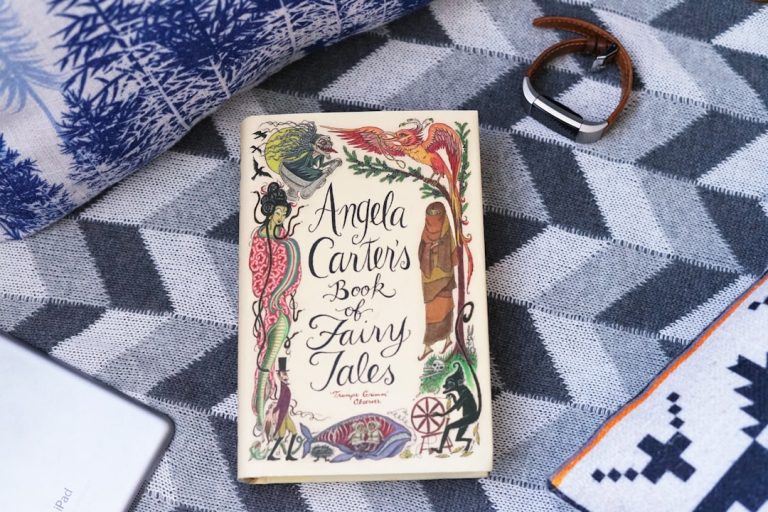
Reading is an essential component of developing strong writing skills.
This exposure not only broadens their understanding of language but also enhances their ability to express thoughts and ideas clearly and effectively.
The act of reading allows writers to internalize the mechanics of good writing, such as sentence structure, pacing, and the use of literary devices. As they encounter different authors’ voices and styles, readers can discern what resonates with them and what does not, ultimately shaping their own writing voice. Moreover, reading serves as a source of inspiration and creativity.
Engaging with diverse narratives can spark new ideas and perspectives that writers can incorporate into their work. For instance, a writer might read a compelling character study in a novel and be inspired to develop a similar depth in their own characters. Additionally, reading widely can help writers understand the conventions of different genres, which is crucial for anyone looking to write effectively within a specific category.
By analyzing how established authors construct their narratives, writers can learn to craft their own stories with greater skill and confidence.
Key Takeaways
- Reading is crucial for improving writing skills as it exposes writers to different styles, vocabulary, and techniques.
- Selecting the right English books, such as novels, essays, and poetry, can provide diverse perspectives and writing styles for improvement.
- Different genres of English books, including fiction, non-fiction, and poetry, offer unique opportunities for honing writing skills.
- Incorporating vocabulary and grammar from English books into writing can enhance the quality and fluency of the written work.
- Analyzing writing styles and techniques from English books can help writers understand and adapt effective writing strategies.
Selecting the Right English Books for Enhancing Writing Skills
Choosing the right books is pivotal for anyone looking to enhance their writing skills. Not all literature serves the same purpose; therefore, it is essential to select texts that align with one’s writing goals. For instance, aspiring novelists might benefit from reading contemporary fiction that showcases strong character development and intricate plot structures.
Books like “The Goldfinch” by Donna Tartt or “The Night Circus” by Erin Morgenstern offer rich narratives that can teach writers about pacing and tension. Conversely, those interested in non-fiction writing may find inspiration in memoirs or essays that exemplify clarity and persuasive argumentation, such as “Educated” by Tara Westover or “The Year of Magical Thinking” by Joan Didion. In addition to genre considerations, the complexity of the language used in a book can also influence a writer’s development.
Reading works by authors known for their eloquent prose, such as Virginia Woolf or F. Scott Fitzgerald, can help writers appreciate the beauty of language and the power of imagery. On the other hand, books that employ straightforward language can teach clarity and precision, which are equally important in effective writing.
Writers should aim for a balanced reading list that includes both challenging texts and accessible ones to cultivate a well-rounded skill set.
Utilizing Different Genres of English Books for Writing Improvement

Exploring various genres can significantly enhance a writer’s versatility and adaptability. Each genre has its conventions and expectations, which can provide valuable lessons for writers looking to expand their repertoire. For example, reading poetry can sharpen a writer’s ability to convey emotions succinctly and powerfully.
Poets like Mary Oliver or Pablo Neruda demonstrate how to evoke strong feelings through carefully chosen words and imagery. By studying their work, writers can learn to distill complex emotions into concise phrases, a skill that is beneficial across all forms of writing. Similarly, delving into genres such as science fiction or fantasy can encourage writers to think creatively about world-building and character development.
Authors like Isaac Asimov or J.K. Rowling create intricate universes that require careful attention to detail and consistency. By analyzing how these authors construct their worlds and develop their characters, writers can gain insights into crafting believable settings and multifaceted personalities in their own narratives.
Furthermore, engaging with genres outside one’s comfort zone can foster innovation and originality, pushing writers to experiment with new ideas and styles.
Incorporating Vocabulary and Grammar from English Books into Writing
| English Book | Vocabulary Learned | Grammar Applied |
|---|---|---|
| 1984 by George Orwell | Newspeak, Doublethink | Complex sentence structures |
| To Kill a Mockingbird by Harper Lee | Racial injustice, empathy | Use of dialogue for characterization |
| The Great Gatsby by F. Scott Fitzgerald | Ostentatious, disillusionment | Use of symbolism |
A robust vocabulary is a cornerstone of effective writing, and reading English books is one of the best ways to acquire new words and phrases. As writers encounter unfamiliar terms in context, they can better understand their meanings and nuances. For instance, reading classic literature such as “Pride and Prejudice” by Jane Austen exposes writers to period-specific language that can enrich their own writing.
By noting how certain words are used in various contexts, writers can expand their lexicon and enhance their ability to articulate complex ideas. Grammar is another critical aspect of writing that can be improved through reading. Exposure to well-structured sentences helps writers internalize grammatical rules and conventions without the need for explicit instruction.
For example, observing how authors use punctuation for effect—such as employing dashes for emphasis or commas for rhythm—can inform a writer’s own stylistic choices. Additionally, reading books that focus on grammar and style, such as “The Elements of Style” by Strunk and White, can provide practical guidance on how to apply these rules effectively in one’s writing.
Analyzing Writing Styles and Techniques from English Books
A deep analysis of various writing styles can significantly inform a writer’s approach to their craft. Each author has a unique voice shaped by their experiences, cultural background, and personal preferences. By studying these differences, writers can identify elements they wish to emulate or avoid in their own work.
For instance, Ernest Hemingway’s minimalist style contrasts sharply with the lush prose of Gabriel García Márquez. Writers can learn from Hemingway’s economy of words while also appreciating Márquez’s ability to create vivid imagery through elaborate descriptions. Furthermore, examining narrative techniques such as point of view, dialogue, and pacing can provide invaluable insights into effective storytelling.
For example, the use of unreliable narrators in novels like “Gone Girl” by Gillian Flynn challenges readers’ perceptions and keeps them engaged through twists and turns. Writers who analyze such techniques can experiment with similar strategies in their own narratives, enhancing suspense or emotional impact. By dissecting how different authors achieve their effects, writers can develop a more nuanced understanding of storytelling mechanics.
Practicing Writing Exercises Inspired by English Books

Engaging in targeted writing exercises inspired by English books can solidify the lessons learned through reading. One effective exercise is to mimic the style of a favorite author for a short piece. This practice allows writers to experiment with different voices while honing their skills in areas such as dialogue or description.
For instance, if a writer admires the sharp wit found in Jane Austen’s dialogue, they might attempt to write a scene featuring similar banter between characters. This exercise not only fosters creativity but also encourages writers to step outside their comfort zones. Another valuable exercise involves rewriting scenes from well-known books from a different character’s perspective or altering key plot points.
This technique encourages writers to think critically about character motivations and narrative structure while also allowing them to explore alternative storytelling methods. For example, reimagining the events of “Romeo and Juliet” from Mercutio’s point of view could lead to fresh insights into the original text while providing an opportunity for creative expression.
Seeking Inspiration and Ideas from English Books for Writing Projects
English books are treasure troves of inspiration for writers embarking on new projects. Whether it’s a character’s journey or an intriguing setting that sparks an idea, literature often provides the seeds for original stories. Writers can take inspiration from themes explored in various texts—such as love, loss, or identity—and adapt them into their own narratives.
For instance, the exploration of existential themes in works like “The Stranger” by Albert Camus might inspire a writer to delve into similar philosophical questions within their own story. Additionally, engaging with literary criticism or analyses of books can further enrich a writer’s understanding of themes and motifs that resonate with them. By examining how different authors tackle similar subjects or narrative structures, writers can identify gaps in existing literature that they might fill with their unique perspectives.
Using English Books as a Tool for Self-Editing and Improvement in Writing
Self-editing is an essential skill for any writer seeking to refine their work. English books serve as excellent reference points during this process, allowing writers to compare their drafts against polished examples of effective writing. By analyzing how established authors structure their sentences or develop their arguments, writers can identify areas where they may need improvement in clarity or coherence.
For instance, if a writer notices that their paragraphs lack transitions or flow poorly compared to a well-crafted essay they admire, they can take steps to revise accordingly. Moreover, reading one’s own work aloud can reveal awkward phrasing or grammatical errors that may not be apparent when reading silently. This technique mirrors the way many authors approach editing; they often read their drafts multiple times before finalizing them.
By adopting similar practices—such as seeking feedback from peers or utilizing resources like style guides—writers can cultivate a more critical eye toward their work. Ultimately, using English books as benchmarks for quality writing empowers writers to elevate their craft through diligent self-editing and continuous improvement.
If you are looking to improve your writing skills with English books, you may also be interested in exploring the power of song lyrics. Song lyrics can be a great source of inspiration for writers, helping them to develop their creativity and storytelling abilities. Check out this article on sersea.ink to learn more about how song lyrics can enhance your writing skills.
FAQs
What are some effective ways to improve writing skills with English books?
Reading a variety of English books can help improve vocabulary, grammar, and writing style. Analyzing the writing techniques of different authors and practicing writing in different genres can also be beneficial.
How can reading English books help improve writing skills?
Reading English books exposes individuals to different writing styles, vocabulary, and grammar structures. It can also provide inspiration and ideas for one’s own writing.
What types of English books are recommended for improving writing skills?
A variety of English books, including fiction, non-fiction, poetry, and essays, can be beneficial for improving writing skills. It’s important to choose books that align with one’s interests and goals for writing improvement.
Are there specific writing exercises that can be done while reading English books?
While reading English books, individuals can practice summarizing chapters, analyzing character development, and writing their own reflections or responses to the text. They can also try imitating the writing style of the author as a way to practice different techniques.
How can English books be used to expand vocabulary and improve grammar?
Reading English books exposes individuals to a wide range of vocabulary and sentence structures. Keeping a vocabulary journal and noting down unfamiliar words can help expand vocabulary, while paying attention to grammar usage in the text can improve one’s own grammar skills.



